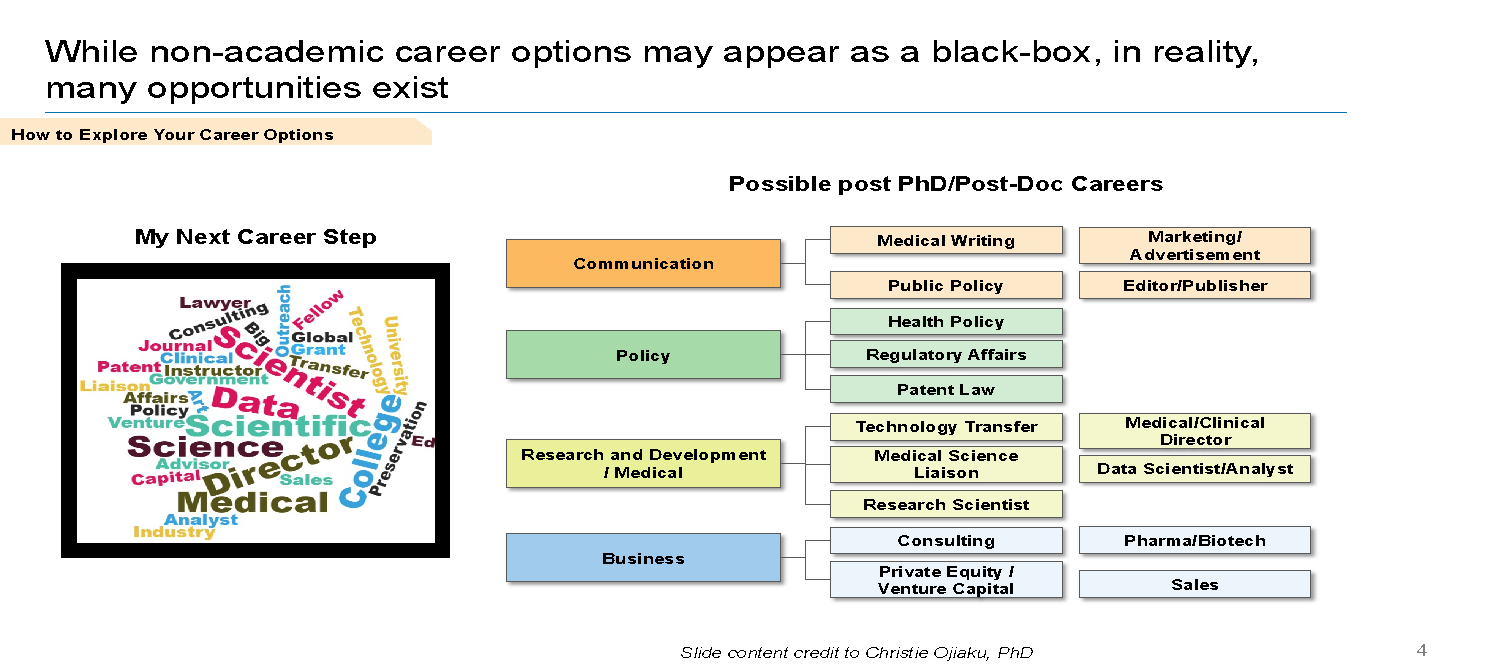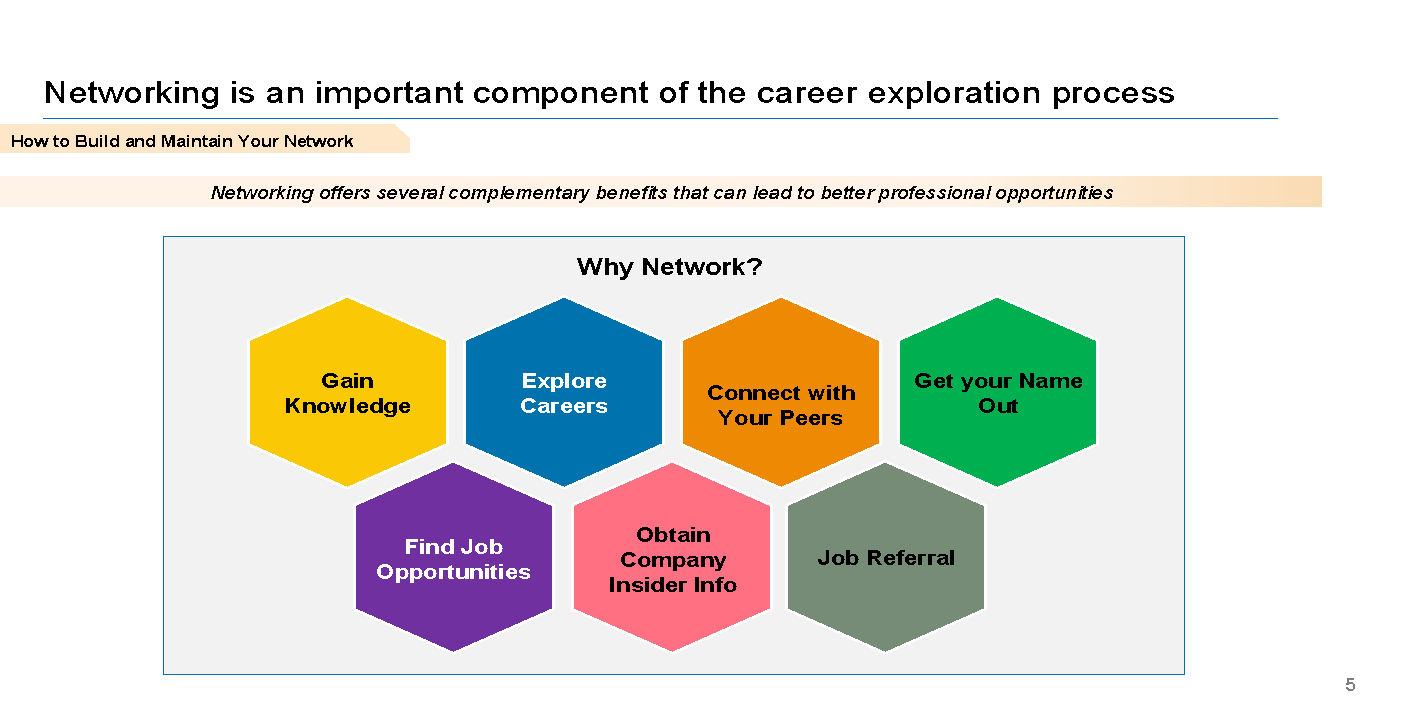|
Words by: Dr. Sindhuja Devanapally Edited by: Dr. Lucie Yammine, Dr. Laurie Herviou, Dr. Conchi Izquierdo  Recently, INet-NYC hosted an informative and timely career development seminar series led by professional development coach, Dr. Valentina Schneeberger. By day, Valentina is an Associate Director of Market Research at Sanofi, but her other passion lies in coaching PhD-holders for career success. After a PhD in cancer biology at University of South Florida and a postdoctoral research career in Memorial Sloan Kettering, New York, Valentina transitioned out of academics into the world of life-sciences consulting at Charles River Associates. She sets an example for how scientists with expertise in biology can still contribute to career sectors most academics are unfamiliar with. In this four-part webinar series, Valentina exemplified the plethora of opportunities there are for anyone with a PhD degree, outside of academia. As part of the series, I summarize a list of actionable steps that Valentina provided for career exploration and successfully landing a job. Part 1: How to plan for your post-PhD career There are many opportunities that exist for postdocs outside of an academic career. Slide from Valentina Schneeberger’s talk. Content credit: Christie Ojiaku, PhD. While the academic work environment is the most familiar for many of us, many individuals realize along the way that perhaps other professional directions are better to explore. However, the problem arises when one does not know where to begin. Through sequential steps broadly divided into three phases, Valentina used this seminar to provide the attendees with a guide to getting started on the career exploration path: i) Identify interests and priorities through self-assessment: Valentina suggests self-introspection and reflection on personal priorities in addition to examining your professional interests. Combining these aspects can help you develop a list of must-haves you can focus on during a career search. You can prioritize in order of importance these factors: intellectual stimulation, income level, work culture, flexibility in work hours, location of the job and amount of social interaction and travel. There are several self-assessment resources that exist, such as the Yale self-assessment worksheet and the more popular myIDP by Science Careers. These resources help you expand your thoughts to imagine a career you previously never considered. Valentina emphasized that one must not set their limited expectations of oneself to inhibit exploring with an open mind when it comes to career exploration. ii) Research the career options that align with your interests and priorities: As a PhD-holder, there are many ways we can delve deeper into finding roles that match our interests. All of them somehow relate to professional networking. Some examples include:
iii) Design an approach to explore the career option of your interest: If you are in the first step of transitioning out of academia, job preparation can be an almost full time job. Yet, it is a necessary step to successfully make the career switch. In this phase, Valentina strongly suggests committing a time chunk dedicated to job searching. This means that clear boundaries are set and expectations are met while balancing it with your day job. A schedule of tasks needs to be drafted to check off the list as part of necessary job skills preparation or for the job interview. Finally, you need to simply execute this list of tasks and keep yourself accountable as you track your progress towards the new job applications. As you may notice, career exploration demands a good amount of time and energy from you but for a favorable outcome, you would need to have a clear channel of communication with your PI. This begins with setting your expectations with your PI on the progression of your publication and your timeline of exit from the lab. At the same time, Valentina suggests communicating your future needs about aiming for a different career path while balancing current expectations from your PI and delivering results within your current role as a postdoc. How to network for success
In this webinar, Valentina showed the importance of networking towards building chances for a career opportunity. She advised that successful networking significantly improves your ability to be hired and provides a series of steps to effectively network.
0 Comments
Your comment will be posted after it is approved.
Leave a Reply. |
Archives
May 2025
Categories
All
|


 RSS Feed
RSS Feed